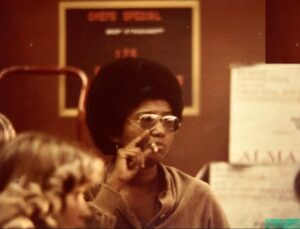Trailblazing Black News Correspondent Gail Christian Dead at 83
Gail Christian, who broke barriers as a Black on-air correspondent and rose to national prominence at NBC News and PBS, died on April 12 in Los Angeles. She was 83.
The cause was complications of recent intestinal surgery, said her spouse, Lucy DeBardelaben.
Ms. Christian overcame a troubled youth, including a prison stint for armed robbery, to carve out a career as a prominent television journalist and news executive in the 1970s and ’80s, an era when the industry was dominated by white men.
She became a visible presence in American living rooms with her coverage for NBC News of the trial of Patricia Hearst, the newspaper heiress who was kidnapped in 1974 by a band of leftist revolutionaries called the Symbionese Liberation Army, and who was convicted two years later for participating in a bank robbery with the group.
But for Ms. Christian, it was not enough simply to gain exposure as a rare Black face on the evening news.
“I always wanted to be ‘the Black reporter,’ as in covering Black stories,” she said in an interview with The Chicago Tribune in 1986. “I felt that was the reason I was there. I didn’t resent it in the least. I felt then, as I feel now, it is very dangerous for a group of people to live in a society where they are not allowed to interpret themselves.”
She made good on that mission with features like “A Country Called Watts,” an hourlong special for NBC News in 1977 that explored the efforts by residents of that Los Angeles neighborhood to come together and reassess the bloody civil disturbance that had occurred in response to police brutality in 1965, and to rebuild burned-out blocks in the face of perceived government indifference and continuing police harassment.
“Gail kept pushing to get the faces and voices of Black people on TV news, so that footage of Black men in handcuffs would no longer be the only images of Black people that white viewers could see,” Gary Gilson, the former faculty director of a summer program for minority students at the Columbia University Graduate School of Journalism, said in a phone interview. “And her pioneering role as a Black news reporter allowed young Black kids to see, many for the first time, someone admirable on TV who looked like them. It gave them recognition and hope.”
